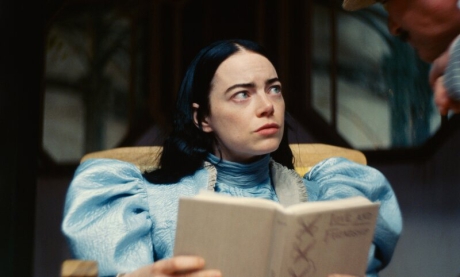Arts
You are here
Poor Things - Steam-punk Frankenstein feminism

March 1, 2024
Greek director Yorgos Lanthimos is not afraid of the weird or quirky as his previous films attest: the absurdist black comedy The Lobster [2015], a film which follows a newly single bachelor who moves into a hotel with other singletons, who are all obliged to find a romantic partner in 45 days, or else be transformed into animals, or the psychological horror film The Killing of a Sacred Deer [2017].
In some ways his work could be compared to that of Ari Aster, the young American filmmaker, whose output sits somewhere between horror and black comedy, and one of whose aims is surely to unsettle and disturb audiences.
Poor Things, however, in spite or because of the quirky and weird, is a pure delight. It is a distinctly feminist fable that takes place in some weird steam-punk Victorian age and has definite links to Mary Shelley’s Victorian masterpiece Frankenstein.
Emma Stone plays the main character Bella Baxter, whose adoptive father Godwin Baxter (played to creepy perfection by Willem Dafoe), or God as she calls him, dabbles in surgery on both live and dead subjects. Bella herself is an experiment where Baxter implants a baby’s brain in her body.
This sets up the conceit of the film, which posits Bella as a clean slate, a woman who will learn about societal norms and strictures for women as she develops and for whom these norms and strictures seem nonsensical.
Stone does an amazing job at playing the stages of development that Bella goes through in the way she moves haltingly and jerkily and gradually develops vocabulary and the ability to string more than two or three words together, often in striking new ways.
Stone has described the process of rehearsal where she worked with Lanthimos to develop five different stages of development for Bella and she is also an executive producer on the movie.
The sets help to create the other-worldly environment since there is almost no ‘outside’. We are thrust into the weird and wonderful world of Poor Things as the scene changes from London to Lisbon to Paris with technology that definitely was not part of the Victorian era, such as the carriages with horse heads but that run on steam, or the bizarre trolley cars that fly above the Lisbon skyline.
But the real revelation of the film is the way Bella reacts to the attempts to make her behave like a ‘proper’ lady. The odyssey she embarks upon when she leaves God’s house to explore the world, along with the caddish Duncan Wedderburn (played to hilarious and sleazy perfection by Mark Ruffalo), sees her bumping up against society’s expectations and at every turn refusing to comply with these strictures.
When she and Duncan end up penniless in Paris she goes to work in a brothel but turns the whole expected behaviour of the women who work there on it’s head. She suggests to the Madame who runs the place that rather than having the prostitutes line up to be chosen or not by the customers, the prostitutes should choose the customers since it will make the whole experience more pleasurable.
She meets a young Black prostitute at the brothel, Toinette, who tells her she is a socialist. Bella asks what this is and when Toinette replies it’s about making the world a better place for the poor & oppressed Bella immediately replies, “Then I am that too.”
The parallels with Shelley’s Frankenstein are there but in this case, rather than the ‘monster’ being destroyed by society, Bella refuses to conform to the sexist norms of her world and manages to turn on its head the whole patriarchal structure.
Section:
Topics:









